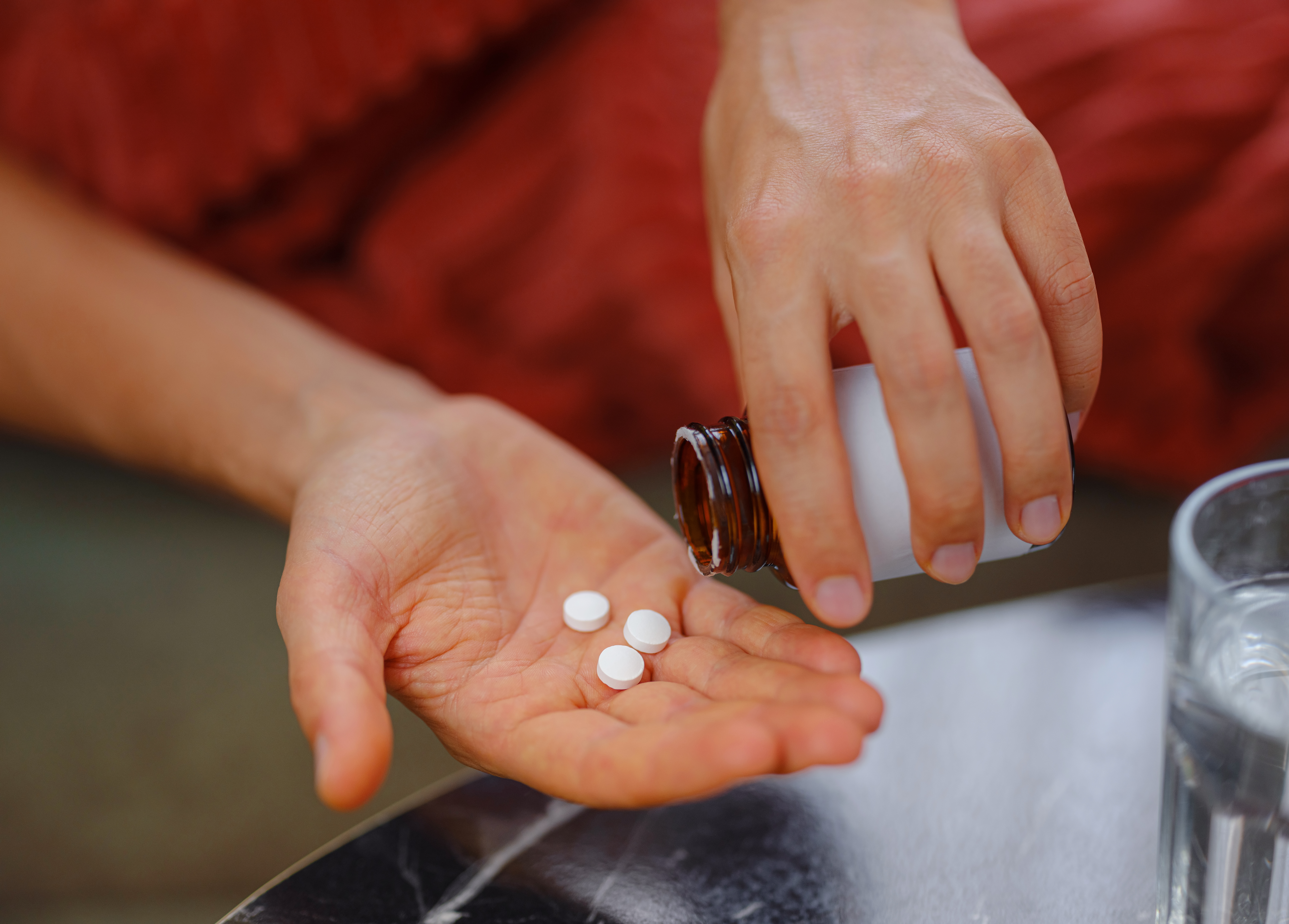Taking medication in summer is not just a matter of maintaining your usual daily routine. In the summer heat, it is particularly important to pay attention to the correct storage and use of medications, as high temperatures can affect their quality, effectiveness, and safety. Summer heat, increased UV radiation, jet lag from traveling, and lifestyle changes can have a serious impact on the effectiveness and safe use of medications. In this article, we’ll show you what to pay special attention to during the summer months if you take medication regularly.
Why is it particularly important to take medication in summer?
During the summer months, our bodies undergo changes: we sweat more, our daily routines may be disrupted, and we often travel more. All of these factors influence how medications affect our bodies. Taking medication in the summer requires extra attention because heat and UV radiation, as well as changes in fluid and electrolyte balance, can alter the quality, absorption, effect, and breakdown of medications.
Example: blood pressure medication, diuretics, or certain antibiotics can cause serious, harmful side effects in summer conditions if we do not consciously adapt.
Certain precautions must be taken when taking medication in summer.
Heat-sensitive medicines: storage in hot weather
Storing medicines in summer is particularly challenging, as proper storage is essential to preserve their quality, efficacy, and safety. Most medicines should be stored at room temperature, between 15 and 25 °C. However, during the summer heatwave, temperatures can rise above 50 °C in a window or even in a bag left in a car, which can damage the active ingredients in medicines. It is important to always store medicines in a cool, dry place in accordance with the storage instructions in the patient information leaflet, especially in hot weather, to avoid deterioration in quality. If medicines are not stored properly, decomposition products may form, which can even be harmful to health.
TIP: Do not leave medicines in the sun or in a closed, warm place! If you need to store a product that requires refrigeration, such as insulin, always use a cooler bag or thermos when traveling, and take special care to protect these medicines from heat.
If you notice any abnormalities in the medicine, such as changes in color, appearance, texture, separation, etc., do not use it, even if it is within the specified shelf life!
Time zone change: how to time your medication when on vacation?
Another important aspect of international travel is taking medication, especially during vacations. Time differences can disrupt your usual medication schedule, especially if you are taking a medication that requires precise dosing.
1. For medications taken once a day
In this case, it is advisable to take the medication at the same time of day according to the new time zone, if the time zone difference is only 2-3 hours. In the case of a larger time zone difference (e.g. in the case of the USA or Asia), a gradual transition is recommended, adjusting the intake by 1-2 hours per day. However, it is important to note that there are medications that can disrupt sleep when taken in the evening, so taking them close to bedtime should be avoided. In the case of a larger time difference, it is advisable to consult your family doctor before traveling to determine the best time to take your medication.
2. Medicines taken several times (e.g., every 12 hours)
It is important that the time between doses is not too short or too long. On the first day, only partially adjust to the new time zone, set an alarm or use a reminder so that you do not miss a dose. For time differences of 8–10 hours, it is advisable to consult a doctor – especially in cases of epilepsy, anticoagulation therapy, or insulin therapy.
3. Important medications (e.g., antiepileptics, insulin, anticoagulants)
The timing of these doses is crucial, as too much deviation can be dangerous. Be sure to consult your doctor or pharmacist before traveling! They will help you plan your transition on an individual basis—even with a schedule that is accurate to the hour.
If you are unsure about taking your regular medication, ask your doctor or pharmacist for advice before traveling!
Sunlight and medications: phototoxic reactions in summer
When taking medication during the summer, it is important to consider the interaction between the medication and sunlight. Certain medications—such as some antibiotics, anti-inflammatory drugs, or psychiatric drugs—increase the skin’s sensitivity to light, which can lead to sunburn and rashes. It is advisable to check the patient information leaflet before taking these medications.
A related risk is that, in combination with certain medications, sunlight can cause additional skin problems or other side effects.
TIP: If your medication is phototoxic, avoid direct sunlight, wear long-sleeved clothing, a wide-brimmed hat, and use sunscreen with a minimum SPF of 30!
Fluid intake and hydration – the key to safety
In the summer heat, we can easily become dehydrated, especially the elderly, children, and those with chronic illnesses. Taking medication in the summer requires extra attention to fluid replacement, because dehydration not only causes discomfort, but can also affect the effectiveness of medications.
Dehydration can be particularly dangerous if you are taking diuretics, blood pressure medication, or diabetes medication. Drink regularly and avoid excessive caffeine and alcohol consumption!
Did you forget to take it? Don’t double up!
Due to vacations, activities, and disruptions to your usual routine, you may miss a dose. When taking medication during the summer, it is important not to try to “make up” for a missed dose by taking a double dose—this can be dangerous!
TIP: Always read the patient information leaflet, as it usually contains instructions on what to do if you miss a dose. If you are unsure what to do, ask your pharmacist or doctor. It is a good idea to set a reminder on your phone or use a pill dispenser.
Taking medication in summer requires caution, especially when your usual daily routine is disrupted. It is also important to store medication out of the reach of children in summer and when traveling. It is advisable to keep medicines in a lockable medicine cabinet or, if this is not possible, in a lockable container or storage box where children cannot access them.
Conscious medication use in summer: the key to health even in hot weather
Taking medication requires much more attention in summer than in cooler months. High temperatures, strong sunlight, the challenges of traveling, and changes in lifestyle all affect the quality and effectiveness of medications. By being prepared and paying attention to storage, dosage, hydration, and sun protection, you can stay healthy even during the hottest months.
If you are unsure about taking your regular medication, ask your doctor or pharmacist for advice before traveling!
Sources:
Gyógyszertárolási szabályok a nyári melegben – WEBBeteg
Gyógyszerszedés – nyáron | Házipatika


